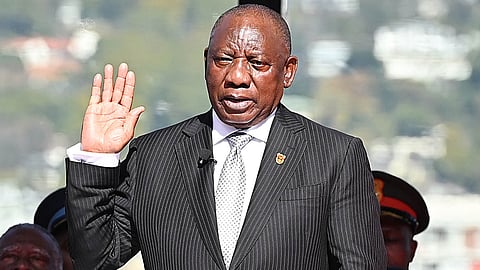John Matisonn: We have a government! – How the President juggled the politics
South Africa's new multiparty cabinet announced on June 30 aims for better governance but faces criticism for being bloated and inefficient. The ANC retains control of key ministries, while opposition party ministers bring optimism. Challenges include inexperienced ministers and political sensitivities, yet the commitment to corruption-free governance and practical reforms offers hope.
Sign up for your early morning brew of the BizNews Insider to keep you up to speed with the content that matters. The newsletter will land in your inbox at 5:30am weekdays. Register here.
Join us for BizNews' first investment-focused conference on Thursday, 12 September, in Hermanus, featuring top experts like Frans Cronje, Piet Viljoen, and more. Get insights on electricity and exploiting SA's gas bounty from new and familiar faces. Register here.
By John Matisonn
South Africa can expect to be better governed by the new multiparty cabinet announced on Sunday evening, June 30, even though the president could have done better.
___STEADY_PAYWALL___

